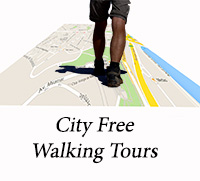It is possible that at some point you might feel yourself in physical danger or things are at a crisis point with the driver of your car. Be warned prevention is key and spotting trouble before it starts is the best way to ensure a safe and enjoyable experience. These are our tips on how to avoid reaching the point of no return and what to do if you get there.
.
-
With drivers try to make conversation. Try and learn the basic questions: what’s your name? Where are you from? Where are you going? Try and learn the name of your nationality, and that of the countries you have visited or are planning to visit. Also try and learn thank you very much. Visit our Country Guides for useful phrases for each country.
-
Always smile, if they are looking to make conversation, be open and approachable. If you don’t understand what they are saying smile and indicate that you don’t understand with a smile and shrug point to your ear and shake your head. It’s a shame but it’s not the end of the world.
-
Some hitch-hikers like to travel with a small gift that they can give to people who help them. We have met people who have postcards, on which they could write greetings in their language. Which we thought was a nice idea. Other small items that represent your own country are always a nice touch. If you can do origami, that would be lovely. The problem with gifts is that you only have a limited amount of space for personal things when travelling so any gifts that are to large would be impossible to carry. We would love to hear any ideas for travelling gifts, so feel free to drop us a line.
-
Try and learn the word for beautiful so you can both appreciate the stunning scenery as two people with a common understanding. If you stop for food, you can offer to pay for it, it is unlikely to cost a great amount. In our experience our drivers insist on paying, pushing our money away as if we were insulting him and the idea was preposterous.
-
If you are travelling as a man and woman its probably best to say you are a couple. Ladies to say that you are in a relationship, regard of your actually situation. It helps to set the boundaries immediately. If any men do get overly touchy. Draw attention to yourself. Beep the horn! If you think you are getting driven in the wrong direction, complain, if you don’t feel comfortable, get out of the car, at the earliest opportunity. If possible keep your luggage within touching distance.
-
Always carry the majority of your money and any bank or credit cards in a money belt strapped to your body under your clothes and a small amount of money in your wallet. Keep your passport in a separate bag in your luggage or in the money belt. Also try to keep a small amount of money kept seperately apart for emergencies. If somebody is violent give them the money in the wallet. Deny all knowledge of having any more. If they discover the money belt. Give them the money belt. .
-
If you feel it is worth reporting the crime, then report it. If you feel it is insignificant enough that the authorities will pay no attention, then write it off as a bad cause. Again do some research about the state of the justice system of the country you are in. It might not be worth the effort in some parts of the world. The police are the police and you are a tourist who doesn’t speak the language.
But please, don’t let any of the above advice put you off. The chances of having problems whilst you are hitch-hiking are extremely slim. Most people you meet will be lovely, nice people who won’t wish you any harm at all.
.
written by: Jon
















Pingback: How to travel on a budget (transportation: part 1 – hitchhiking) | Hitch-Hikers' Handbook